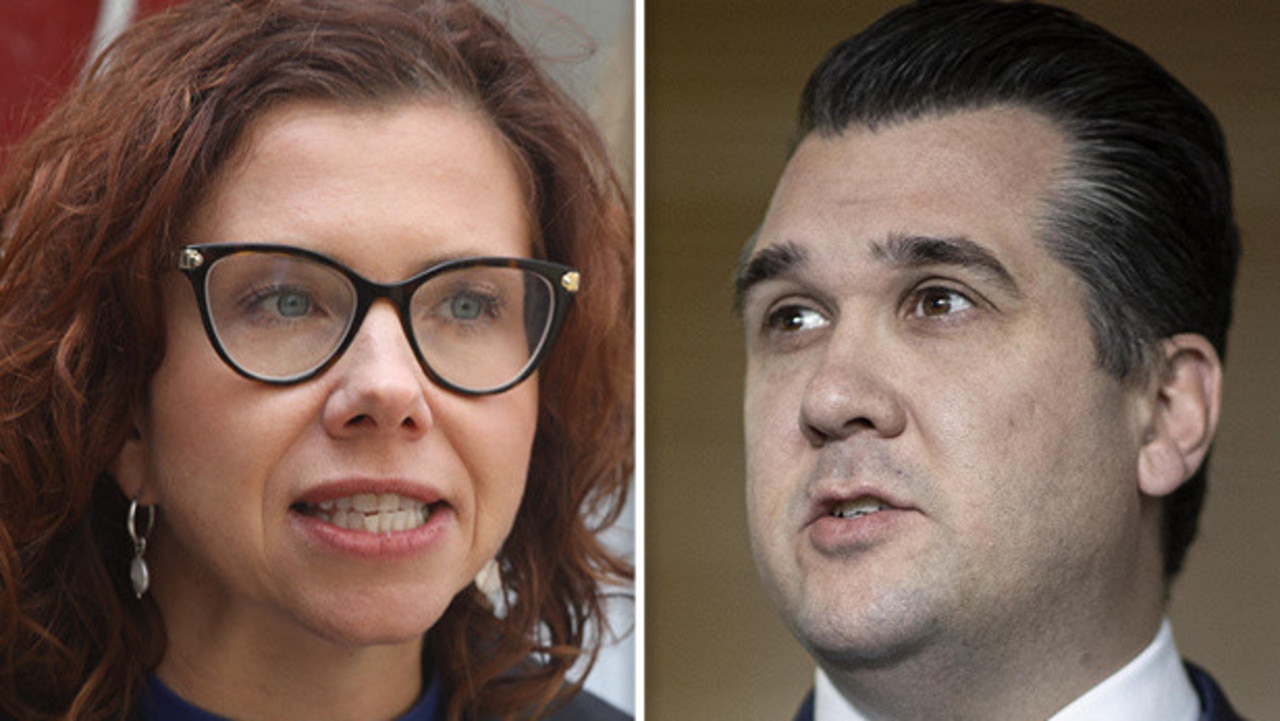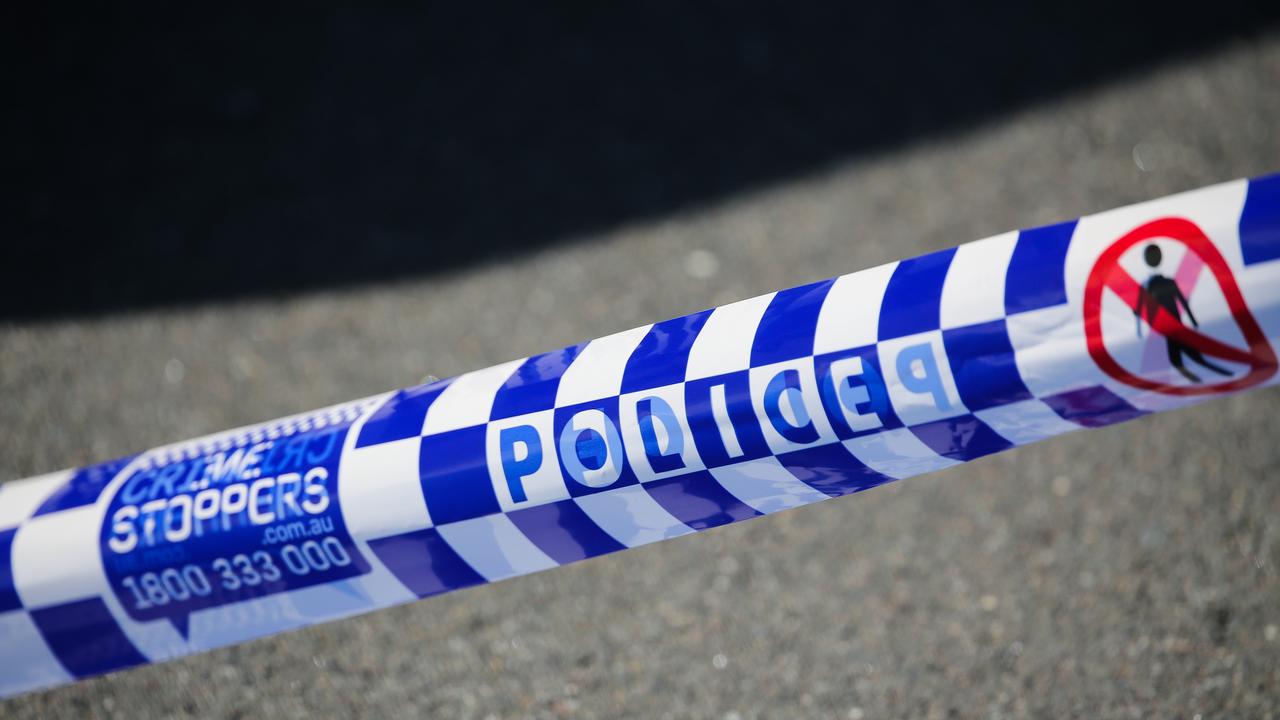Israel-Hamas war: Hamas ‘positive’ tone raises hopes of truce deal
The remains of two more Israelis held and killed by Hamas have been discovered, as efforts for a ceasefire for hostages release persist. Warning: Graphic
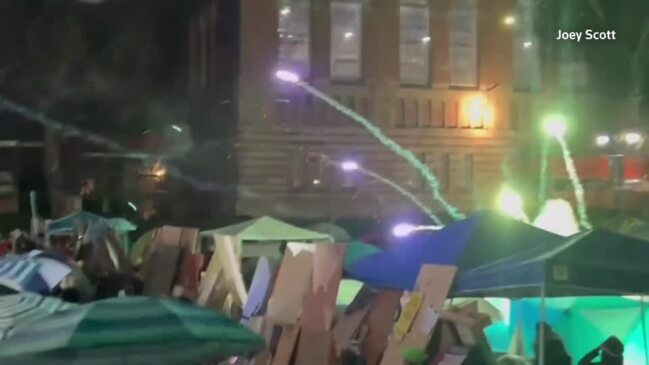
An Israeli man held hostage in Gaza since the October 7 Hamas attack has been confirmed dead, the government and the kibbutz where he had lived said on Friday.
Dror Or, 49, is the latest hostage to have been confirmed dead by Israel after being captured during the Hamas attack that triggered war with Israel.
Or was killed and his body held in Gaza since October 7, the Beeri kibbutz said. It was one of the communities hardest hit in the Hamas attack on southern Israel from the Gaza Strip.
His wife Yonat was killed in the initial attack while two of their three children, Noam and Alma, aged 17 and 13, were abducted and then freed in November as part of a ceasefire and hostages-for-prisoners swap deal between Israel and Hamas.
“We are heartbroken to share that Dror Or, who was kidnapped by Hamas on October 7, had been confirmed as murdered and his body is being held in Gaza,” the Israeli government said on X.
The two children and their brother Yahli are now orphans, it added.
We are heartbroken to share that Dror Or who was kidnapped by Hamas on October 7, had been confirmed as murdered and his body is being held in Gaza.
— Israel ישר×ל 🇮🇱 (@Israel) May 2, 2024
Dror’s wife Yonat was murdered on October 7.
His children Alma (13) and Noam (17) who were held hostage by Hamas and released in… pic.twitter.com/DkA06ndBnu
“My sister, their mum, was murdered on October 7,” their uncle Ahal Besorai told CNN in November. “The children did not know that. We thought they were together when they were kidnapped, but they were separated from the outset.”
Campaign group the Hostages and Missing Families Forum said it will provide assistance to Or’s family.
The forum and Israeli government did not say how they learned of Or’s death. “Only by securing the release of all hostages, the living for rehabilitation, the deceased for burial can our people’s revival and future be ensured,” the forum said in a statement.
“Israeli government must exhaust every effort to bring Dror and … the other murdered hostages back for honourable burials in Israel.”
Also confirmed are the remains of Eliakim Livman, who was thought to have been taken hostages by Hamas during its October 7 attack.
Livman, a 24-year-old who was working as a security guard at the Nova music festival in southern Israel when the Palestinian militants carried out their unprecedented attack, “was murdered in the October 7 massacre”, the army said in a statement.
More heartbreaking updates: Today, Eliakim Libman's family received the devastating news that he was murdered in the October 7th massacres.
— Adam Albilya - ××“× ×לביליה (@AdamAlbilya) May 3, 2024
Initially thought to be held hostage in Gaza, Eliakim Libman's status remained uncertain until recent discoveries led Israeli authorities… pic.twitter.com/jPrdIpLSsk
Livman, who until Friday had been counted among the around 250 people taken captive during the attack, was “found in Israeli territory”, it said.
When contacted by AFP, the army declined to provide further details about where and how his body was found.
But it said Livman had been identified “based on field evidence, following a thorough and complex investigation conducted by the IDF (army), Israel Police and the National Institute of Forensic Medicine”.
According to Israeli media reports, his remains were discovered buried by mistake alongside another victim from the Nova music festival.
His family issued a distraught statement after being informed of the news. “After more than 200 days and nights of searches, worries, prayers and tears of tens of thousands of people of Israel, we were informed with great sadness that our dear and beloved son … is no longer among the living,” the statement said.
The family said Livman had been killed at the site of the music festival after staying “for hours to take care of the many wounded”.
Israel estimates that 128 captives seized during the attack remain in Gaza. The military says 35 of them are dead, including Or.
During a week-long truce in November, militants released 105 hostages, the 80 Israelis among them in exchange for 240 Palestinians held by Israel.
The October 7 attack resulted in the deaths of more than 1,170 people, mostly civilians, according to an AFP tally of Israeli official figures.
Israel’s retaliatory offensive against Hamas has killed at least 34,622 people in Gaza, mostly women and children, according to the Hamas-run territory’s health ministry.
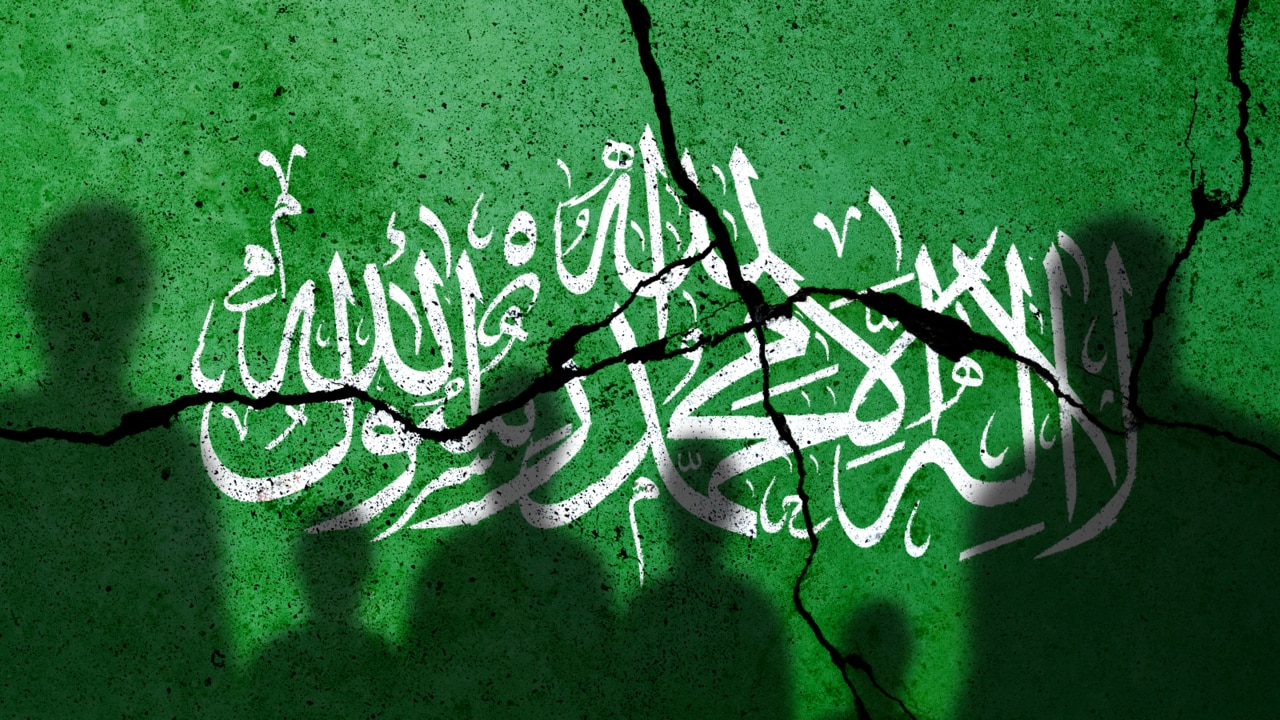
FOLLOW UPDATES BELOW:
NETANYAHU ‘OBSTRUCTIONIST’: HAMAS
A top Hamas official accused Israeli Prime Minister Benjamin Netanyahu on Friday of trying to derail a proposed Gaza truce and hostage release deal with his threats to keep fighting the Palestinian militant group.
“Netanyahu was the obstructionist of all previous rounds of dialogue... and it is clear that he still is,” senior Hamas official Hossam Badran told AFP by telephone.
.@WHO is deeply concerned that a full-scale military operation in Rafah, #Gaza, could lead to a bloodbath, and further weaken an already broken health system https://t.co/96h19H0Ppm
— Tedros Adhanom Ghebreyesus (@DrTedros) May 3, 2024
‘POSITIVE HAMAS TONE’ RAISES HOPES OF TRUCE
Hamas is considering in a “positive spirit” a Gaza truce deal, while the UN warned rebuilding the devastated Palestinian territory would require efforts not seen since World War II.
After months of stop-start negotiations, Hamas has sounded an optimistic tone about the latest hostages-for-ceasefire proposal, raising hopes an agreement may soon be reached — even as medics in the besieged strip reported fresh strikes on Gaza’s southernmost city of Rafah on Friday.
Hamas chief Ismail Haniyeh said the group will “soon” send a delegation to Egypt to complete ongoing ceasefire discussions with a deal that “realises the demands of our people”.
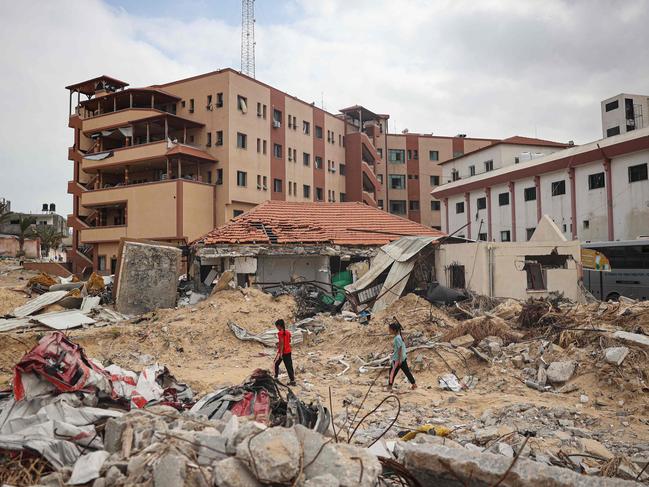
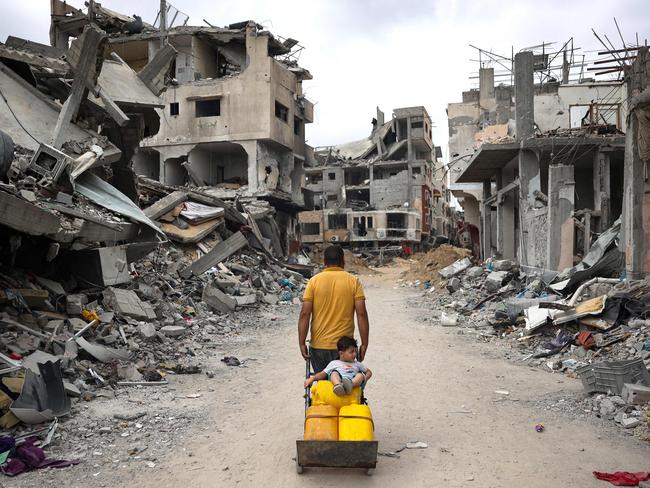
Haniyeh, the leader of the militant group’s political wing, told Egyptian and Qatari mediators in calls on Thursday that Hamas was studying the latest proposal from Israel with a “positive spirit”.
The stakes of the truce talks were thrown into sharp relief Thursday, when a UN report estimated it could take 80 years to reconstruct all the homes flattened over the course of the nearly seven-month war.
“The scale of the destruction is huge and unprecedented … this is a mission that the global community has not dealt with since World War II,” Abdallah al-Dardari, the UNDP’s Regional Director for Arab States told a briefing in Jordan.
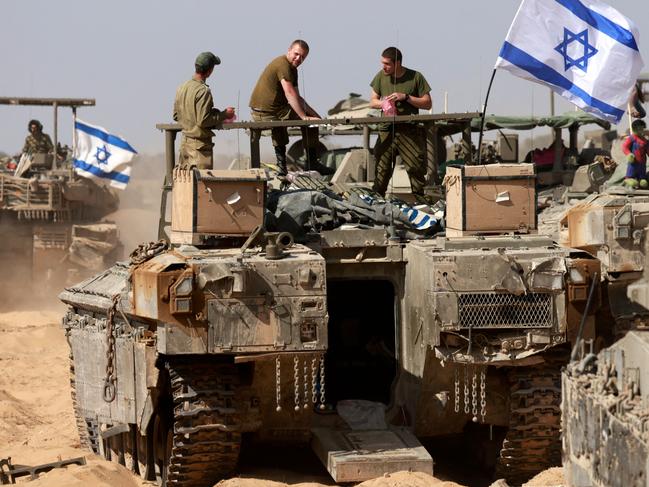
The UNDP assessment forecast the socio-economic toll inflicted will cost generations of Palestinians to come and called for an urgent ceasefire.
The only truce mediators have been able to hammer out so far was a week-long deal in November, that saw the release of 105 hostages for 240 Palestinian prisoners.
Israel estimates that 129 captives seized by the militants during their October 7 attack remain in Gaza.
The military says 35 of them are dead, including 49-year-old Dror Or. The government confirmed Or’s death early Friday. Two of his children were among the hostages released during the November truce.
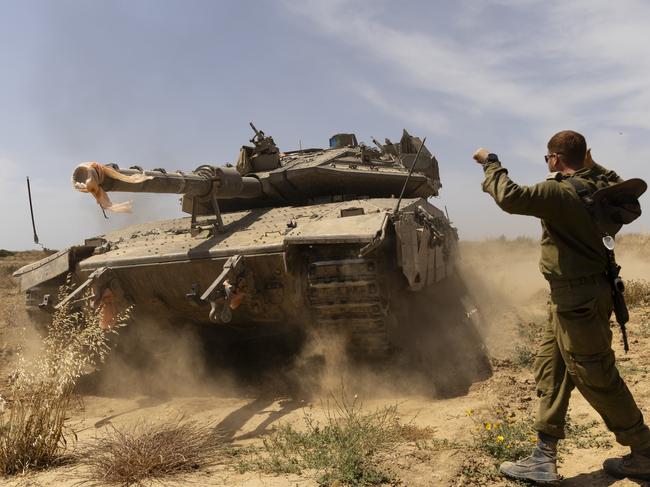
Hamas and Israel have been at loggerheads for months over the terms of any new deal.
The militant group has demanded a permanent ceasefire to end the war and the withdrawal of troops, which Israel has refused.
While Israel faces regular protests demanding the government bring home remaining captives, Prime Minister Benjamin Netanyahu has vowed to fight on.
With or without a truce, he has said he will send ground troops into Rafah, despite global concerns over the fate of around 1.5 million civilians sheltering there.
The truce offer under consideration includes a 40-day halt to fighting and the exchange of Israeli hostages for potentially thousands of Palestinian prisoners, according to details released by Britain.
ISRAEL BUILDING ‘CYBER DOME’ TO DEFEND AGAINST ONLINE ATTACKS
Israel’s Iron Dome defence system has long shielded it from incoming rockets. Now it is building a “cyber dome” to defend against online attacks, especially from arch foe Iran.
“It is a silent war, one which is not visible,” said Aviram Atzaba, the Israeli National Cyber Directorate’s head of international co-operation.
While Israel has fought Hamas in Gaza since the October 7 attack, it has also faced a significant increase in cyberattacks from Iran and its allies, Atzaba said.
“They are trying to hack everything they can,” he told AFP, pointing to Hamas and Lebanon’s Hezbollah movement but adding that so far “they have not succeeded in causing any real damage”.
He said around 800 significant attacks had been thwarted since the war erupted. Among the targets were government organisations, the military and civil infrastructure.
Some attacks could not be foiled, including against hospitals in the cities of Haifa and Safed in which patient data was stolen.
While Israel already has cyber defences, they long consisted of “local efforts that were not connected”, Atzaba said.
So, for the past two years, the directorate has been working to build a centralised, real-time system that works proactively to protect all of Israeli cyberspace.
Based in Tel Aviv, the directorate works under the authority of the prime minister. It does not reveal figures on its staff, budget or computing resources.
Israel collaborates closely with multiple allies, including the United States, said Atzaba, because “all states face cyber terrorism”.
“It takes a network to fight a network,” he said.
ISRAEL SLAMS UNIS AS PROTESTS TURN VIOLENT
Hundreds of police tore down protest barricades and began arresting students early Thursday at the University of California, Los Angeles – the latest flashpoint in an eruption of protest on US campuses over Israel’s war against Hamas in Gaza.
Officers in riot gear ripped down a wooden barricade around the protest encampment and dragged tents away in the fresh campus clashes, which for weeks have seen authorities attempt a tightrope walk between the right to protest and complaints of violence and hate speech.
Students clad in white helmets linked arms and formed a line facing off against officers, who were detaining protesters and leading them away.
Police used flashbangs to disperse the crowds gathered outside the encampment who were chanting “Let them go!” as helicopters hovered overhead.
Officers blocked stairs accessing the encampment, with students dressed in yellow jackets and serving as medics telling AFP they were being largely prevented from accessing the area.
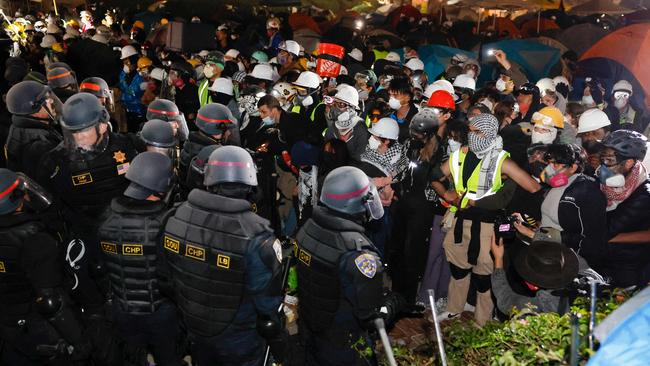
On another side of the encampment students carrying umbrellas, helmets and plastic shields squared off against police in tense silence, with a few sporadic chants of “Free Palestine!” and “From the river to the sea, Palestine will be free!”
“This is a peaceful protest, there are no counter-protesters tonight, so to call the police on them is despicable. This city should support them,” LA resident Jack Bedrosian, who came along to show support, told AFP.
The large police presence, including California Highway Patrol and LAPD officers, comes after law enforcement were criticised for being slow to act during violent clashes late Tuesday when counter-protesters attacked an encampment of pro-Palestinian students.
UCLA said classes would be remote on Thursday and Friday due to the “emergency on campus,” and warned students to avoid the protest area.
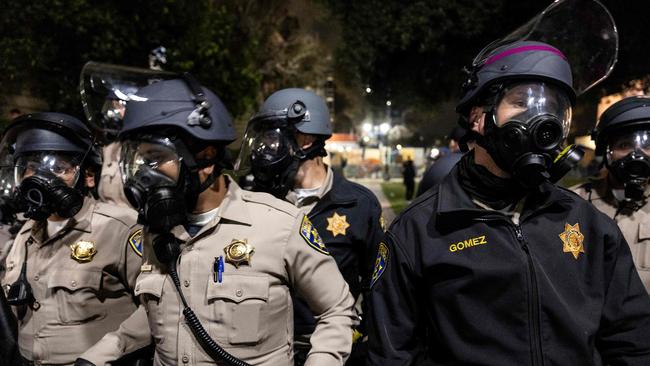
Israel’s president on Thursday slammed US universities for campus unrest over Israel’s war in Gaza, saying these institutions were “contaminated by hatred and anti-Semitism”.
Isaac Herzog said in a special broadcast that he was issuing an urgent message of support to Jewish communities amid a “dramatic resurgence in anti-Semitism and following the hostilities and intimidation against Jewish students on campuses across the US in particular”.
“We see prominent academic institutions, halls of history, culture, and education contaminated by hatred and anti-Semitism fuelled by arrogance and ignorance,” he said.
“We watch in horror as the atrocities of October 7th against Israel are celebrated and justified.”
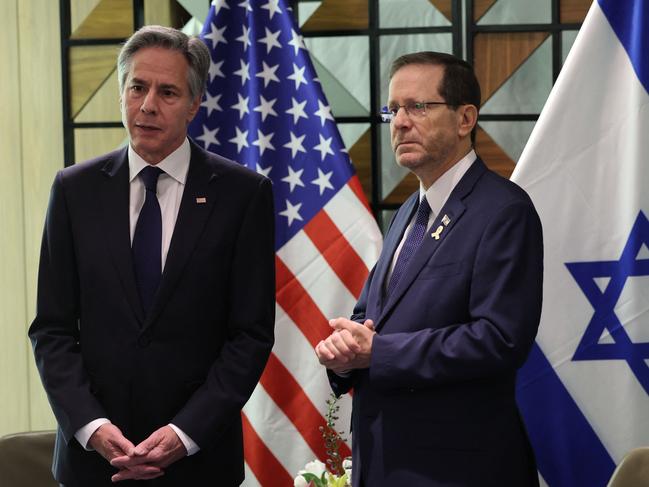
Demonstrators have gathered in at least 30 US universities since last month, often erecting tent encampments to protest the soaring death toll in the Gaza Strip.
Police tore down a protest encampment at the University of Texas on Wednesday, arresting more than a dozen people.
Officers also detained several people at Fordham University in New York and cleared an encampment set up inside a school building, officials said.
At the Massachusetts Institute of Technology, protesters dug in, blocking an avenue near the centre of the campus in Cambridge during the height of Wednesday afternoon’s rush hour commute.
The University of Texas Dallas saw police remove an encampment and arrest at least 17 people for “criminal trespass,” the school said.
Officials at Stanford University in California submitted a photo to the FBI of someone on campus wearing a green Hamas headband as the school struggled to reign in anti-Israel protesters camping overnight on school property.
“We find this deeply disturbing, as Hamas is designated a terrorist organisation by the United States government,” the school said in a statement. “We have not been able to identify the individual but have forwarded the photo to the FBI.”
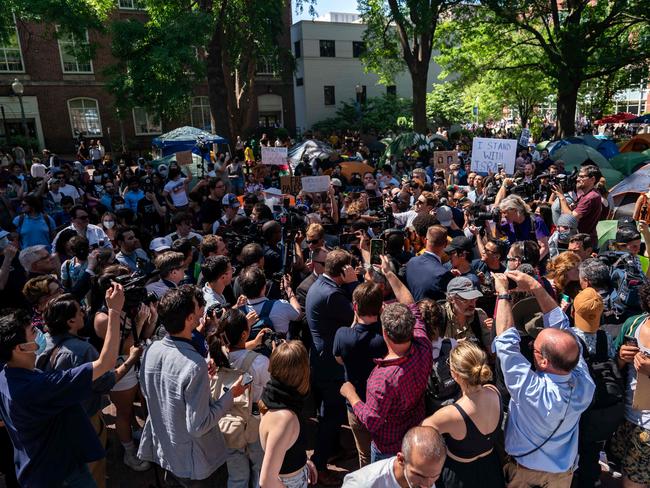
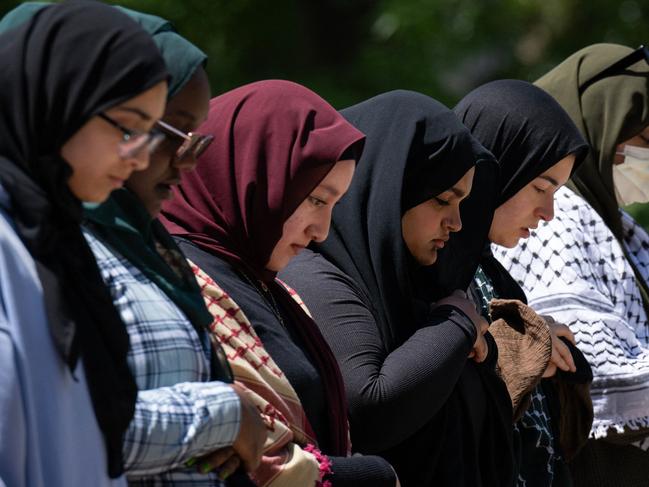
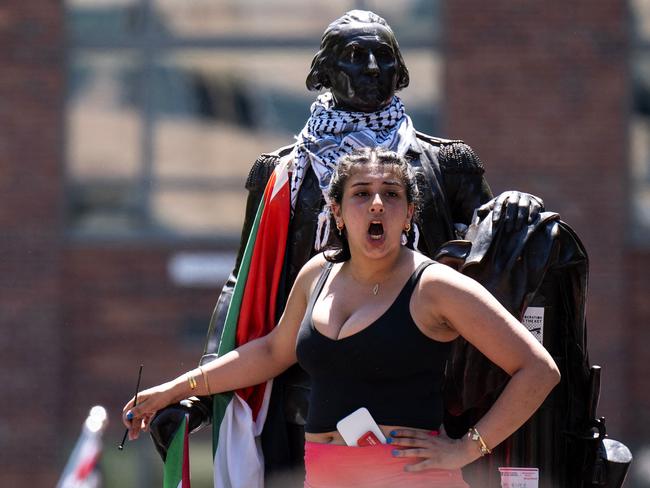
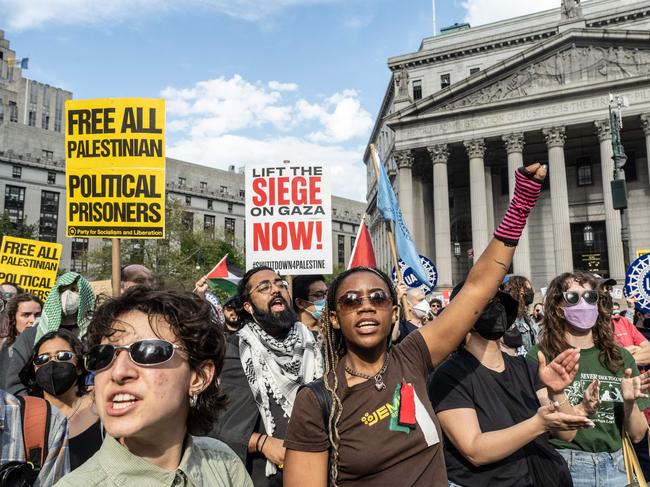
At Columbia University and at the City University of New York, where police cleared out demonstrators overnight into Wednesday, some students decried the police behaviour and described a litany of injuries, including “severe head traumas” and “concussions.”
Police said about 300 arrests were made at Columbia and another New York university.
Mayor Eric Adams blamed “outside agitators” for ratcheting up tensions. Columbia students have denied outsiders were involved.
Donald Trump, has voiced his full-throated support for a crackdown.
“To every college president, I say remove the encampments immediately, vanquish the radicals and take back our campuses for all of the normal students,” he told a rally in Wisconsin on Tuesday.
Mayor Adams said: “This is a global problem that young people are being influenced by those who are professionals at radicalising our children and I’m not going to allow that to happen as the mayor of the city of New York.”
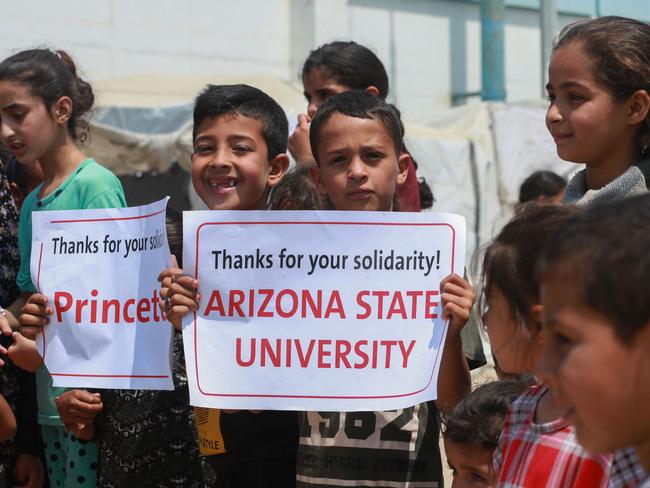
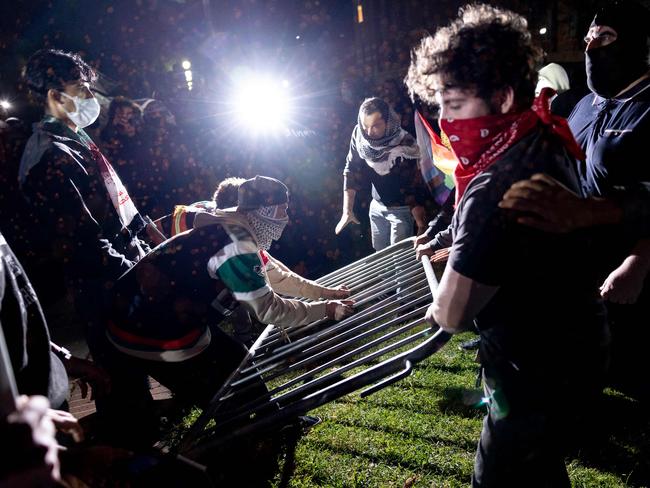
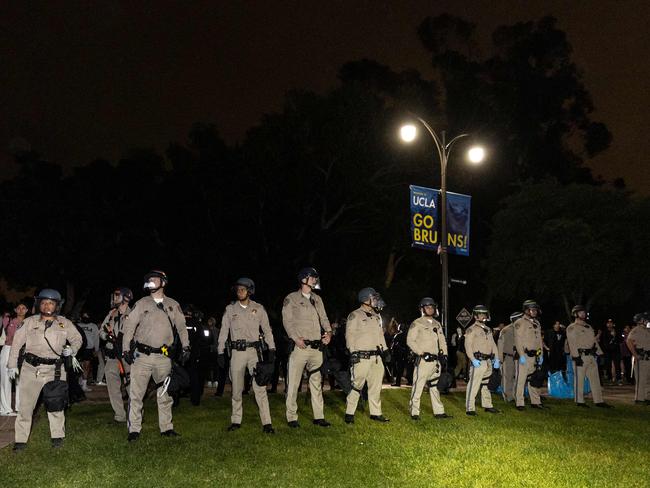
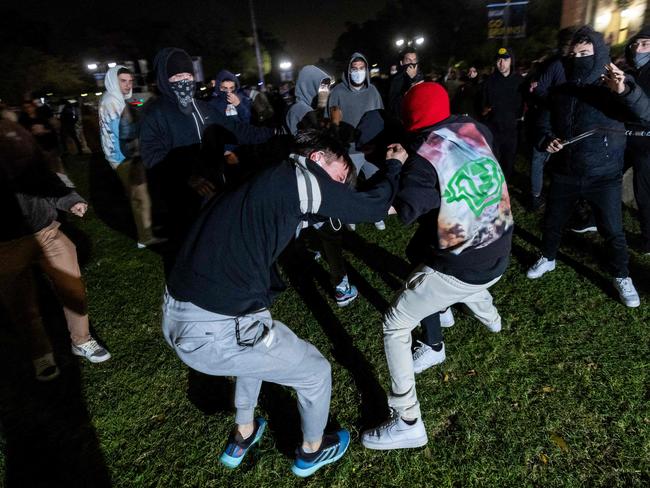
ISRAEL COULD STRIKE POSSIBLE HAMAS LEADER HIDE-OUT
Tensions are bubbling in the Middle East as Israel threatens to strike Rafah in a bid to wipe out Hamas leader Yahya Sinwar and his followers who, the country believes, are hiding in a network of tunnels in the Palestinian city.
Israeli tanks and troops are reportedly lined up on the Gaza border and waiting for the green light to invade the war-torn city in the southern Gaza Strip.
Israel believes Hamas has tunnels and hideouts in five areas of Rafah, with Sinwar said to be inside any one of them and using Israeli hostages as human shields.
A senior western official familiar with Israel’s military plans told Middle East Eye, the country could attack the city and encircle Rafah in a ring of steel to prevent “military age” men from fleeing.
Checkpoints will reportedly be set up to allow only women and children to leave ahead of the possible invasion, the official added.
He said: “They (the Israelis) have set up or are setting up sophisticated checkpoints … They allow women and children to move, but fighting aged males are another thing.”
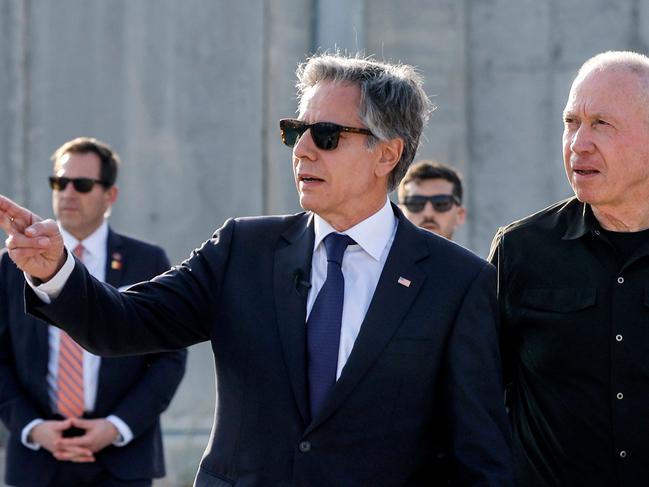
Despite Israel proposing a 40-day truce in return for the release of hostages, Israeli Prime Minister Benjamin Netanyahu said a ground offensive on Rafah would go ahead “with or without” a truce deal as Israel awaits a response from Hamas.
Meanwhile, US Secretary of State Antony Blinken said he made it clear to Israeli leaders not to attack Rafah and said he suggested “better ways” to address Hamas.
“There are other ways – and in our Judgement, better ways – of dealing with the real ongoing challenge of Hamas that does not require a major military operation in Rafah,” Blinken told reporters after talks with Netanyahu and other Israeli leaders.
MORE CLASHES AT US UNIVERSITIES
In addition to the New York chaos, clashes also broke out during pro-Palestinian demonstrations at a Los Angeles university campus on Wednesday, US media footage showed.
Other universities around the country also struggled to contain similar protests, but the clashes at the University of California were particularly volatile and erupted just before dawn between rival pro-Palestinian and pro-Israeli groups, according to CCN.
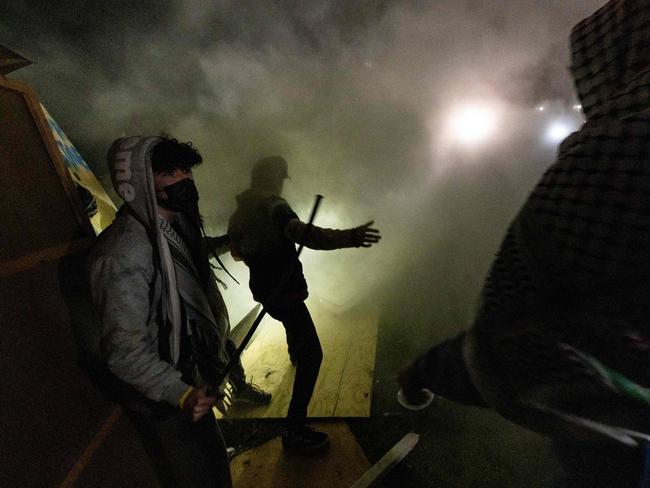
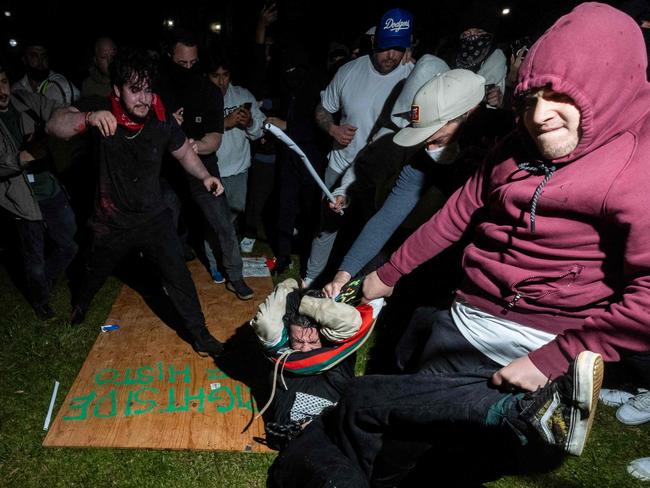
LA police department “is responding immediately to (the university Chancellor’s) request for support on campus,” said Zach Seidl, a spokesman for the city mayor.
Protesters and counter-protesters were seen clashing with sticks, and tearing down metal barricades, TV images showed.
Others were seen launching fireworks or hurling objects at each other in the dark — lit up with laser pointers and bright flashlights.
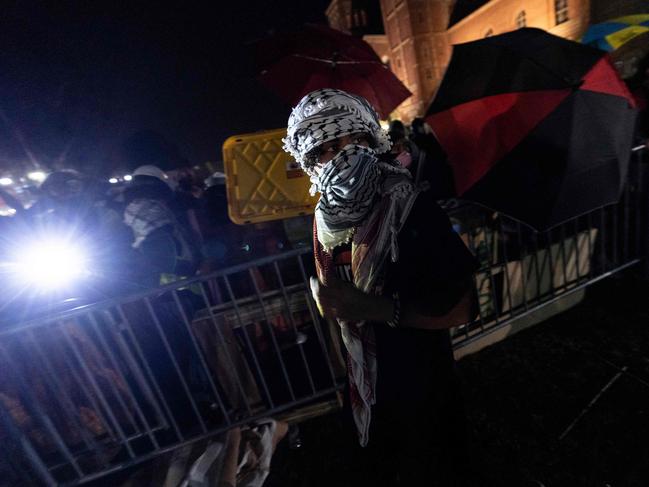
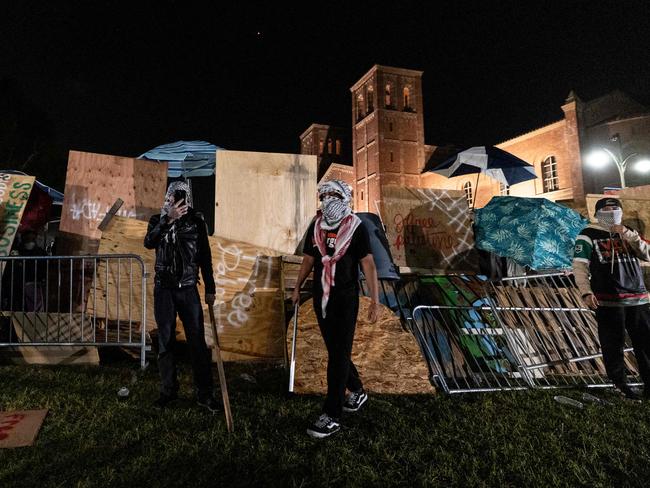
UCLA Chancellor Gene D. Block warned ahead of clashes that protesters including “both members of the UCLA community and others unaffiliated with our campus” had set up a camp last week.
“Many of the demonstrators, as well as counter-demonstrators who have come to the area, have been peaceful in their activism,” Chancellor Block warned in a letter posted on the university website on Tuesday.
“But the tactics of others have frankly been shocking and shameful.
“We have seen instances of violence.
“These incidents have put many on our campus, especially our Jewish students, in a state of anxiety and fear.”
COPS STORM COLUMBIA UNIVERSITY AMID PROTESTS
Dozens of helmeted police marched on to Columbia University’s campus in the heart of New York City and began evicting a building that had been barricaded by pro-Palestinian student protesters.
AFP journalists could see police climbing up to the second story of Hamilton Hall from a laddered truck and disappear inside, as student newspaper the Columbia Spectator said arrests were being made.
Hamilton Hall had been barricaded at dawn by students who vowed they would fight any eviction, as they protested the soaring death toll from Israel’s war with Hamas in the Gaza Strip.
The action came as university administrators around the United States struggle to contain pro-Palestinian demonstrations on dozens of campuses.
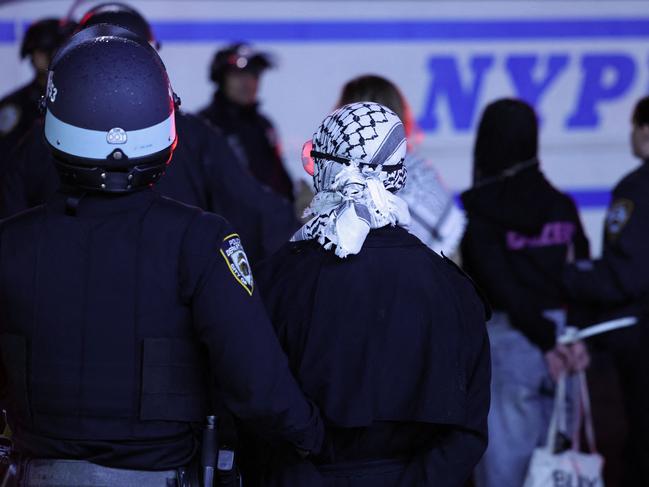
The demonstrations – the most sweeping and prolonged unrest to rock US college campuses since the Vietnam War protests of the 1960s and 70s – have already led to several hundred arrests of students and other activists.
Many of them have vowed to maintain their actions despite suspensions and threats of expulsion.
“We will remain here, drawing from the lessons of our people (in Gaza) that stay put, and hold their ground even under the worst conditions,” a protester wearing a Palestinian keffiyeh headscarf, who declined to give her name, told reporters outside the hall earlier in the day.
As she spoke, protesters were seen using ropes to hoist crates of supplies up to the building’s second floor, apparently signalling the students were hunkering down.
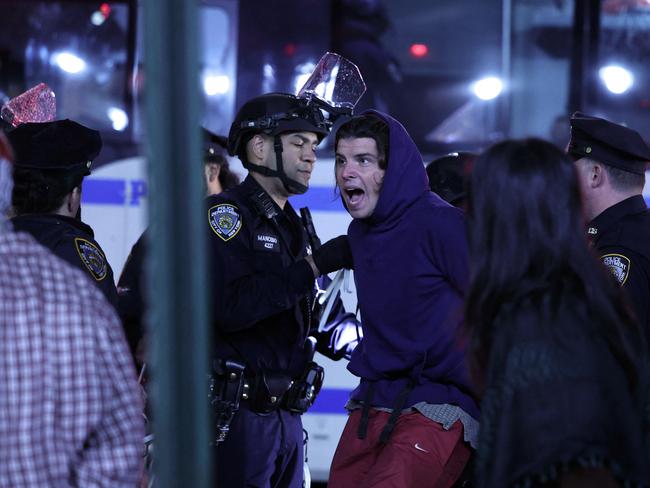
President Joe Biden’s White House had sharply criticised the seizure of Hamilton Hall, with a spokesman saying it was “absolutely the wrong approach.”
“That is not an example of peaceful protest,” the spokesman added.
The protests have posed a challenge to university administrators trying to balance free speech rights with complaints that the rallies have veered into anti-Semitism and hate.
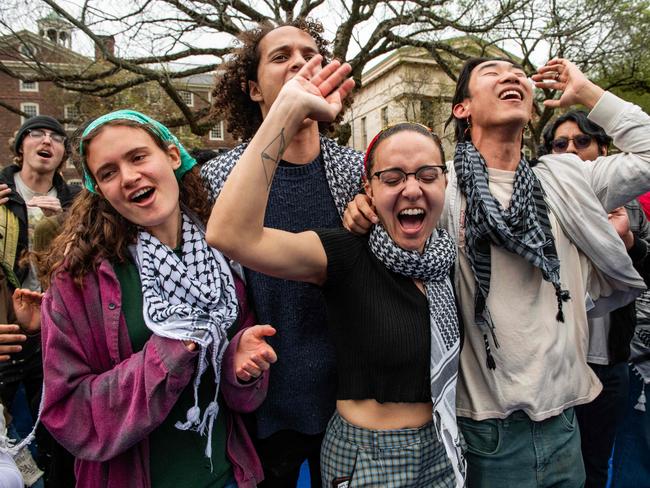
The unrest has swept through US higher education institutions like wildfire, with many student protesters erecting tent encampments on campuses from coast to coast.
At Columbia, demonstrators have vowed to remain until their demands are met, including that the school divest all financial holdings linked to Israel.
The university has rejected the demand, with president Minouche Shafik saying earlier that talks with students had collapsed.
Columbia has warned that students occupying the building face expulsion.
The university outlined in a press update Tuesday that those in the encampments and Hamilton Hall “number in the dozens,” while nearly 37,000 attend Columbia.
NETANYAHU VOWS RAFAH OFFENSIVE WITH OR WITHOUT TRUCE
Israeli Prime Minister Benjamin Netanyahu has vowed that the military would launch a ground offensive on Gaza’s far-southern Rafah city “with or without” a truce deal being negotiated with Hamas.
The leader issued the warning despite strong concerns raised by Washington DC as US Secretary of State Antony Blinken arrived in Israel on his latest Middle East crisis tour to push for a ceasefire between Israeli forces and Hamas militants in Gaza.
“The idea that we will halt the war before achieving all of its goals is out of the question,” said Netanyahu, who was vowed to destroy Hamas over their October 7 attack that sparked the deadliest ever Gaza war.
“We will enter Rafah and we will eliminate the Hamas battalions there with or without a deal, in order to achieve the total victory,” he told families of some of the hostages still being held in Gaza, his office said.
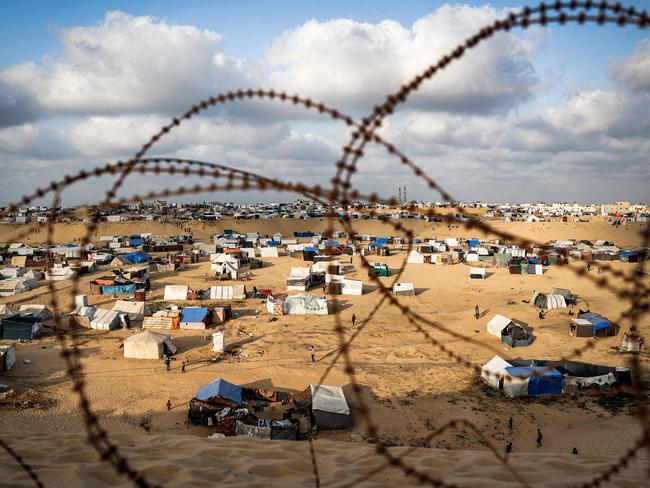
Netanyahu’s comments came as Hamas was weighing the latest plan for a truce proposed in Cairo talks with US, Egyptian and Qatari mediators that had raised cautious hopes for an end to the fighting.
The Palestinian militant group said it was considering a plan for a 40-day ceasefire and the exchange of scores of hostages for larger numbers of Palestinian prisoners.
The Islamist group, whose envoys returned from Cairo talks to their base in Qatar, would “discuss the ideas and the proposal”, said a Hamas source, adding that “we are keen to respond as quickly as possible”.
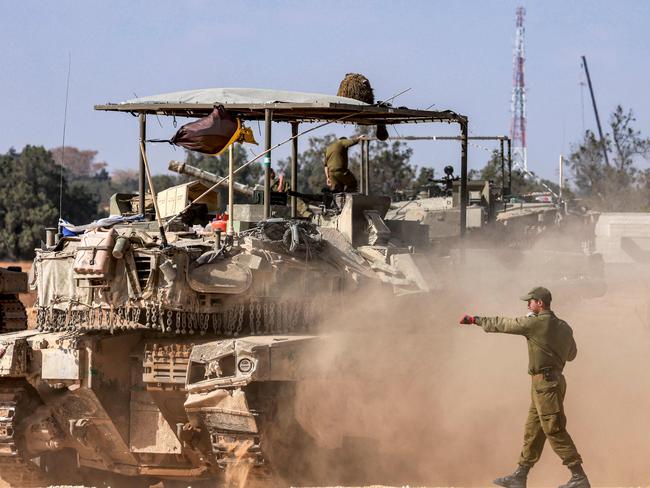
Sources in Egypt earlier told Al-Qahera News, a site linked to Egyptian intelligence services, that Hamas envoys were due to “return with a written response”.
An Israeli official told AFP the government “will wait for answers until Wednesday night”, and then “make a decision” whether to send negotiators to Cairo.
Mr Blinken urged Hamas to accept the truce deal. A truce is “the most effective way to relieve the suffering” of civilians in the besieged Gaza Strip, he told reporters near Amman.
The war started after Hamas’s October 7 attack on southern Israel resulted in the deaths of 1170 people, mostly civilians, according to an AFP tally of Israeli official figures.
Israel’s retaliatory offensive has killed at least 34,535 people in Gaza, mostly women and children, according to the health ministry in the Hamas-run territory.
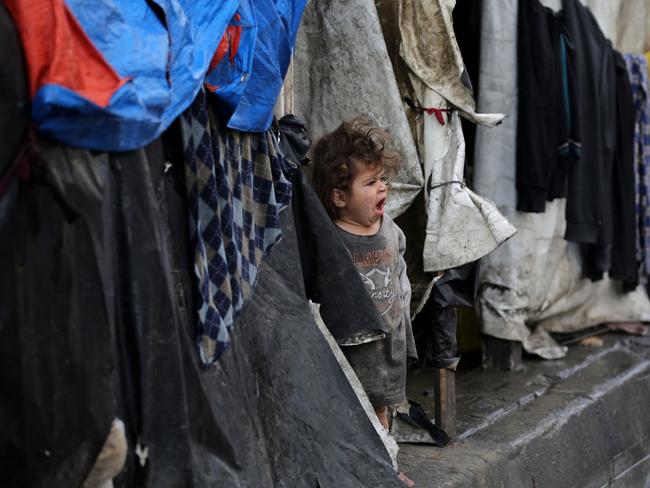
United Nations chief Antonio Guterres on Tuesday implored Israel not to invade Rafah.
“A military assault on Rafah would be an unbearable escalation, killing thousands more civilians and forcing hundreds of thousands to flee,” the secretary-general told reporters.
Such an operation “would have a devastating impact on Palestinians in Gaza, with serious repercussions on the occupied West Bank and across the wider region,” he added.
Rafah has become a refuge for some 1.5 million Palestinians who have fled Israel’s bombardments that have ravaged the territory.
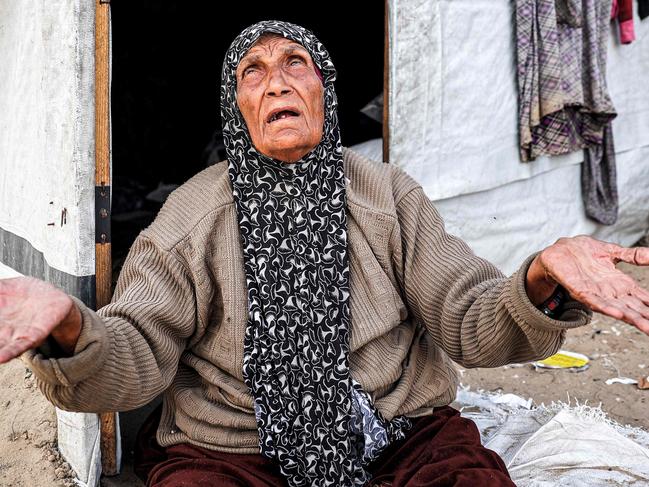
ISRAELI AIR STRIKES CONTINUE, CHILDREN PULLED FROM RUBBLE
As diplomacy continued, Israel kept up its bombardment that has flattened swathes of Gaza.
An AFP correspondent reported several air strikes in Gaza City, Khan Yunis and Rafah as well as overnight artillery shelling.
The Israeli military said “fighter jets struck a number of terror targets in central Gaza”.
Palestinians in Rafah mourned the latest victims as children were being pulled from the rubble.
At Al-Najjar hospital, grief-stricken relatives jostled over the dead, whose bodies were shrouded in white.
“We demand the entire world call for a lasting truce,” said one bereaved relative, Abu Taha.
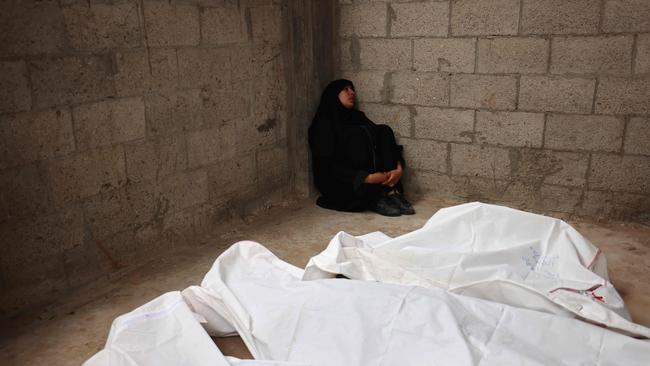
US FINDS ISRAEL GUILTY OF ‘GROSS VIOLATIONS OF HUMAN RIGHTS’
The US has found five units of the Israeli security forces responsible for “gross violations of human rights”, over incidents in the West Bank prior to the October 7 attack.
Four of the units were found to have carried out effective remedial action after the US state department shared its findings with Israel.
The fifth, an ultra-orthodox military unit known as Netzah Yehuda, drawn in part from West Bank settlers, was about to be black-listed earlier this month under the Leahy laws, which bans US funding of any foreign military units involved in atrocities.
US officials said the unit had carried out no apparent remedial action despite having been alerted to the abuses, while the Israeli government lawyers had ignored communications about the issue for months.
“We continue to be in consultations and engagements with the Government of Israel. They have submitted additional information as it pertains to that unit,” State Department principal deputy spokesperson Vedant Patel said.
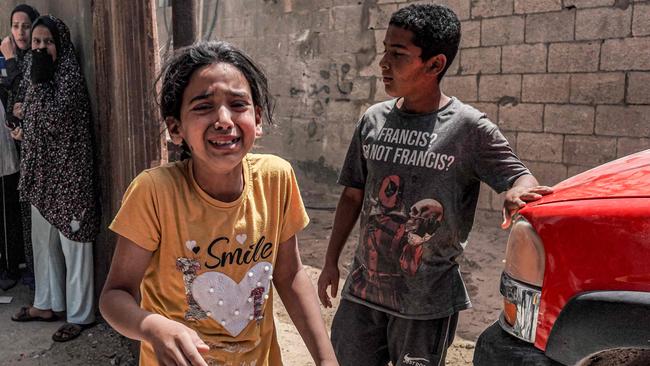
On April 19, Secretary of State Antony Blinken said he had made “determinations” on accusations of human rights violations in the West Bank, triggering speculation that sanctions were imminent.
However, in a letter last week to House Speaker Mike Johnson, the department said they had received new information about the fifth unit.
“The government of Israel has submitted additional information. We are currently reviewing it,” Patel said. “We’re engaging with them in a process and we’ll make a decision from there when that process is complete.”
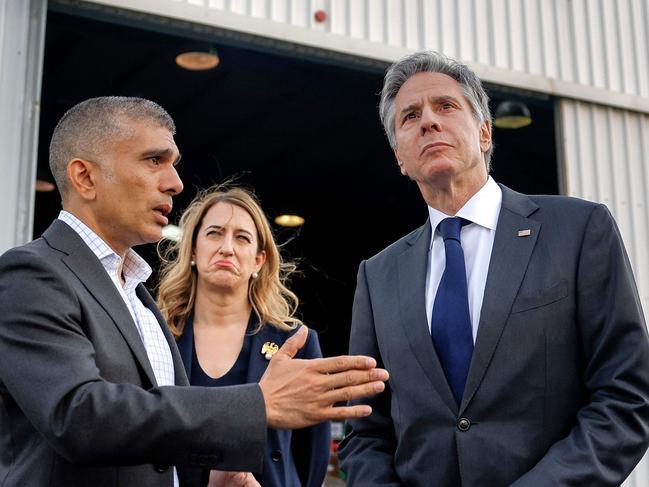
“The standard of remediation is that these respective countries take effective steps to hold the accountable party to justice. And that is different on a country-by-country basis.”
Patel was grilled about whether the State Department was itself in compliance with the Leahy Laws by giving Israel an opportunity to remediate the situation, forcing the spokesman to deny that the Jewish state was receiving “special treatment” from Washington.
The Netzah Yehuda battalion was accused of wrongdoing in the death of 78-year-old Palestinian American Omar Assad, who died of a heart attack in January 2022 following his arrest at an Israeli military checkpoint.
A subsequent IDF investigation concluded that Assad’s death was “a grave and unfortunate event, resulting from a moral failure and poor decision-making on the part of the soldiers” who declined to check on Assad after he lost consciousness.
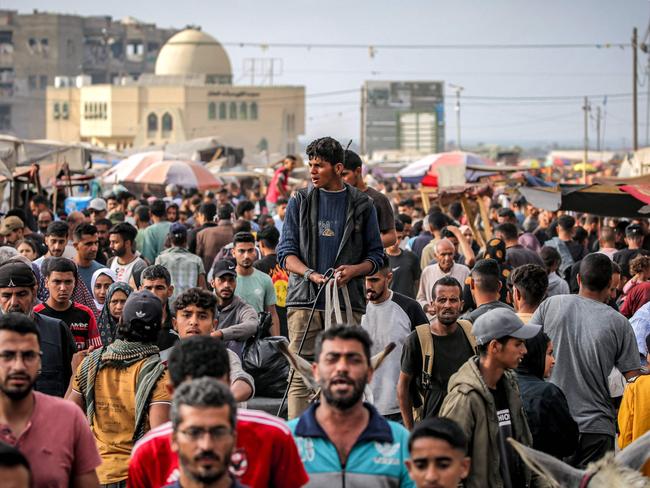
UNIVERSITIES IN TURMOIL OVER PRO-PALESTINE PROTESTS
Demonstrators at Columbia University in Manhattan barricaded themselves inside a campus building early Tuesday, escalating a standoff with school officials as pro-Palestinian protests up-end campuses across the United States.
The occupation of Hamilton Hall at the prestigious university in New York came hours after administrators said they had begun suspending students for failing to comply with an order to disperse.
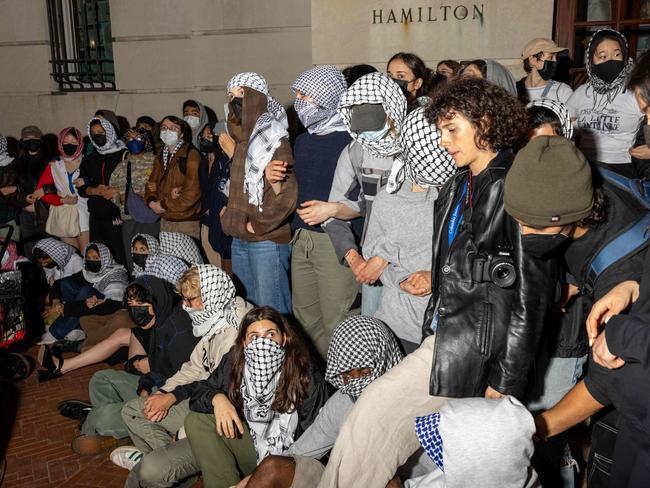
Masked individuals smashed windows and moved metal tables to block the building’s entrances, images shared on social media showed.
The group reportedly renamed the building “Hind’s Hall” in honour of Hind Raja, a six-year-old Gazan girl killed by Israel during its ongoing offensive against Hamas.
The demonstrators vowed to remain at the hall until their demands are met, including that Columbia divest all financial holdings linked to Israel.
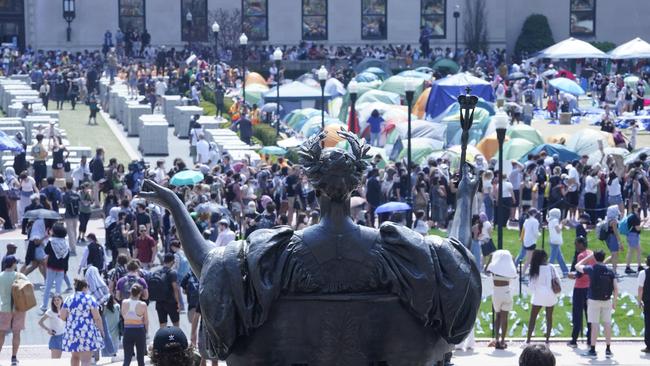
The school has rejected the demand, with a statement by university president Minouche Shafik saying talks with students “were not able to come to an agreement.” The university has now threatened to expel the students occupying the building, it said in a statement.
The White House called the takeover at Columbia “absolutely the wrong approach.”
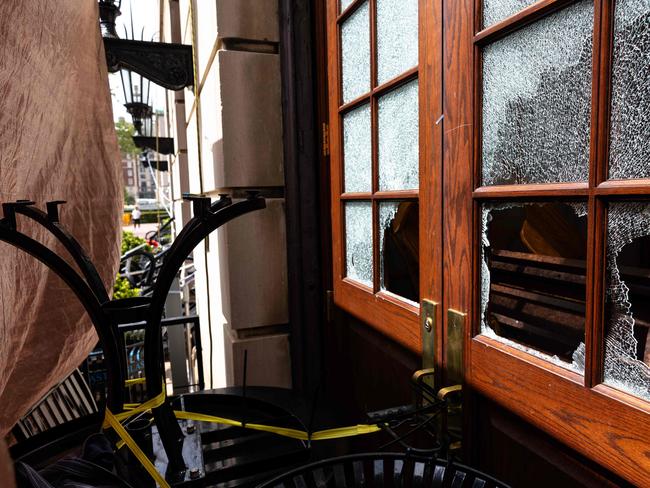
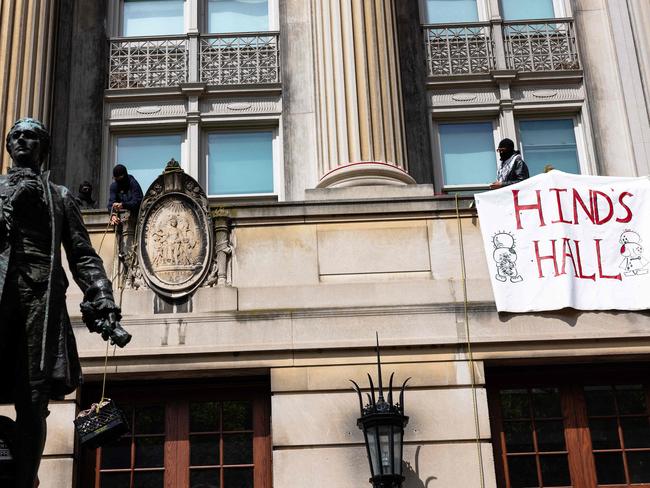
Protests have swept through higher education institutions across the US, with many erecting tent encampments on campus grounds. Hundreds have been arrested.
At the University of North Carolina, police moved in to clear one encampment, while TV footage showed police at the Virginia Commonwealth University in Richmond pushing and shoving protesters, with students saying teargas and pepper spray was deployed.
At the University of Texas at Austin, police clashed with protesters, using pepper spray, and made arrests while dismantling an encampment, adding to the more than 350 people detained nationwide over the weekend.
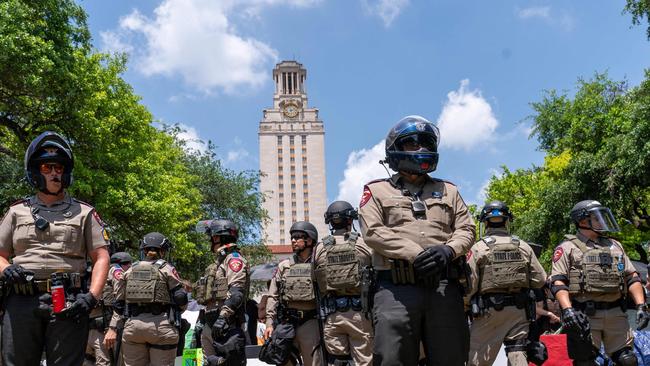
Footage of police in riot gear summoned at various colleges to break up rallies has been viewed around the world, recalling the protest movement that erupted during the Vietnam War.
In France, the Paris region authority suspended funding for Sciences Po, one of the country’s most prestigious universities, after it was rocked by tense pro-Palestinian demonstrations.
“I have decided to suspend all regional funding for Sciences Po until calm and security have been restored at the school,” Valerie Pecresse, the right-wing head of the greater Paris Ile-de-France region, said on social media.
She took aim at “a minority of radicalised people calling for anti-Semitic hatred” and accused hard-left politicians of seeking to exploit the tensions.
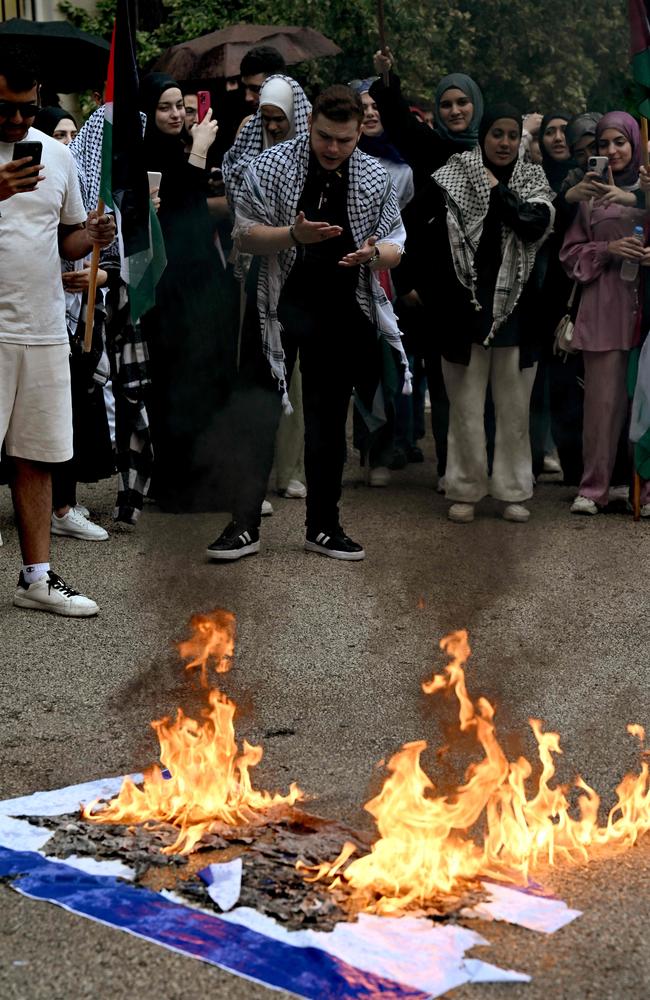
In Lebanon, students set fire to an Israeli flag during a pro-Palestinian demonstration in the Lebanese American University (LAU) in Beirut.
US ‘HOPEFUL’ HAMAS WILL ACCEPT ‘GENEROUS’ GAZA DEAL
US top diplomat Antony Blinken said he was “hopeful” Hamas would accept the latest proposal for a long-sought Gaza truce and hostage release deal as negotiators from the Palestinian group were due in Egypt.
Egypt, Qatar and the United States have been trying to mediate an agreement between Israel and Hamas for months, and a recent flurry of diplomacy appeared to suggest a new push towards halting the fighting.
The Hamas delegation said it would “discuss the ideas and the proposal … we are keen to respond as quickly as possible,” a Hamas source told AFP on condition of anonymity.
According to Egyptian sources quoted by Al-Qahera News, a site also linked to Egyptian intelligence services, the Hamas delegation has left Cairo and will “return with a written response to the truce proposal”.
A senior Hamas official said on Sunday the Palestinian militant group had no “major issues” with the most recent truce plan.

Blinken – on his seventh visit to the region since the October 7 Hamas attack that sparked the war – told a World Economic Forum meeting in Saudi Arabia he was “hopeful” Hamas would accept a truce.
“Hamas has before it a proposal that is extraordinarily, extraordinarily generous on the part of Israel,” Blinken said, urging the group to “decide quickly”. “I’m hopeful that they will make the right decision.”
British Foreign Secretary David Cameron said that Hamas has been offered a “sustained 40 days’ ceasefire, the release of potentially thousands of Palestinian prisoners, in return for the release of these hostages”.
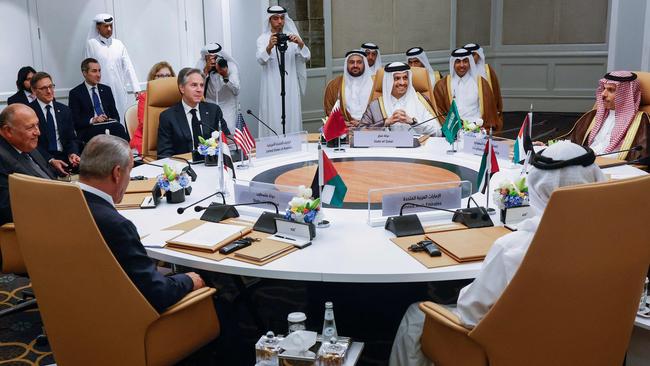
Speaking at the same meeting, Egypt’s Foreign Minister Sameh Shoukry said “the proposal has taken into account the positions of both sides.”
While there was no “final decision” yet, Shoukry said: “We are hopeful … I hope that all will rise to the occasion.”
The war has brought the besieged Gaza Strip to the brink of famine, UN and humanitarian aid groups say, reduced much of the territory to rubble and raised fears of a wider regional conflict.
In southern Gaza, an AFP correspondent, witnesses and rescuers reported air strikes overnight on Rafah, where the majority of Gaza’s 2.4 million people have sought refuge near the border with Egypt.
At least 22 people were killed in the city, medics and the Civil Defence agency said, with witnesses telling AFP at least three houses had been hit.
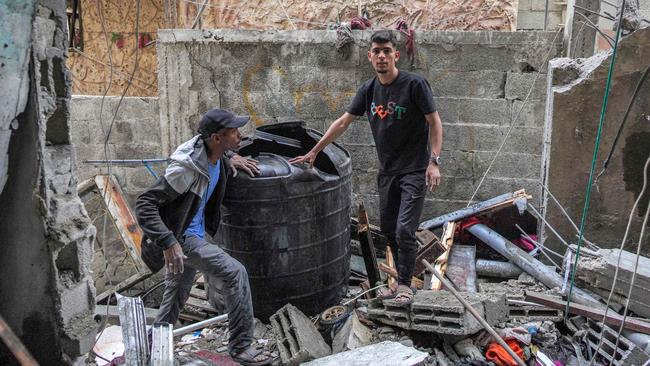
A Hamas source close to the talks has told AFP the group is keen for a deal that “guarantees a permanent ceasefire, the free return of displaced people, an acceptable deal for (a prisoner-hostage) exchange and an end to the siege” in Gaza.
Israel’s retaliatory offensive against Hamas’ October 7 attack that killed 1,170 people has resulted in the deaths of at least 34,488 people in Gaza, mostly women and children, according to the health ministry in the Hamas-run territory.
The tally includes at least 34 deaths in the past 24 hours, a ministry statement on Monday said.
ISRAEL VOICES CONCERNS OVER POSSIBLE ICC ARRESTS
Israel is voicing concern that the International Criminal Court could be preparing to issue arrest warrants for government officials on charges related to its war against Hamas.
Israeli officials are worried that the court could issue arrest warrants against Israel’s Prime Minister Benjamin Netanyahu and other top officials for alleged violations of international humanitarian law in Gaza, Israeli media have reported.
The ICC, which can charge individuals with war crimes, crimes against humanity and genocide, is investigating Hamas’ October 7 cross-border attack and Israel’s devastating military retaliation on Hamas-ruled Gaza, now in its seventh month.
Netanyahu said that any ICC decisions would not affect Israel’s military actions but would set a dangerous precedent.
The ICC is also considering arrest warrants for leaders from Hamas.
It comes as two Israeli ministers publicly opposed a Gaza truce deal, saying Netanyahu’s government had no right to exist if it failed to invade Rafah, Hamas’s last bastion in the Palestinian territory.
Far-right Finance Minister Bezalel Smotrich and war cabinet minister Benny Gantz called for Hamas to be destroyed, as planned by the government when it went to war after the Islamist movement’s October 7 attack.
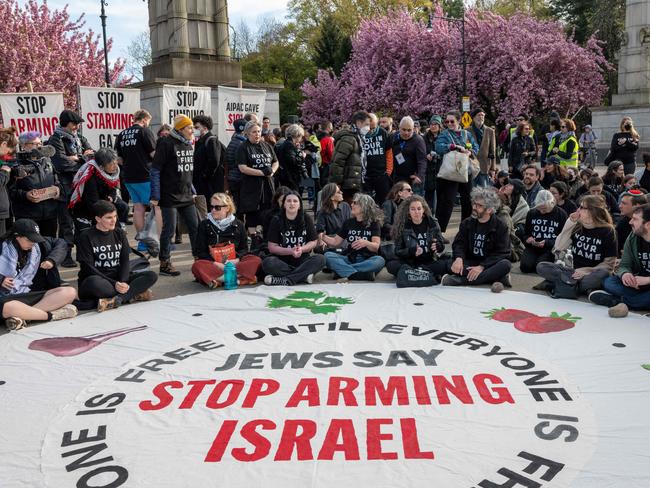
“If you decide to raise a white flag and cancel the plan to occupy Rafah aimed at destroying Hamas in order to restore security to Israel, then the government headed by you will have no right to exist,” Smotrich wrote on X, addressing the premier.
“The Egyptian deal is a humiliating surrender … it sentences the hostages to death, and above all, constitutes an immediate existential danger to the state of Israel.”
Gantz, a former army chief and defence minister, also pushed for Rafah to be invaded.
“Entering Rafah is important in the long struggle against Hamas,” he said in a statement issued by his party.
WORLD CENTRAL KITCHEN RESUMES GAZA WORK AFTER 7 KILLED
The World Central Kitchen non-profit, which supplied meals in Gaza until seven of its aid workers were killed by an Israeli strike nearly a month ago, is to resume operations, its CEO said.
The US-based charity founded by celebrity Spanish-American chef Jose Andres provides food to communities facing humanitarian crises and disasters.
On the night of April 1, seven of its workers were killed in three air strikes over four minutes by an Israeli drone as they ran for their lives between their three vehicles, the Israeli military has said.
The deaths – of an Australian, three Britons, a North American, a Palestinian and a Pole – triggered renewed levels of global outrage over Israel’s military operations.
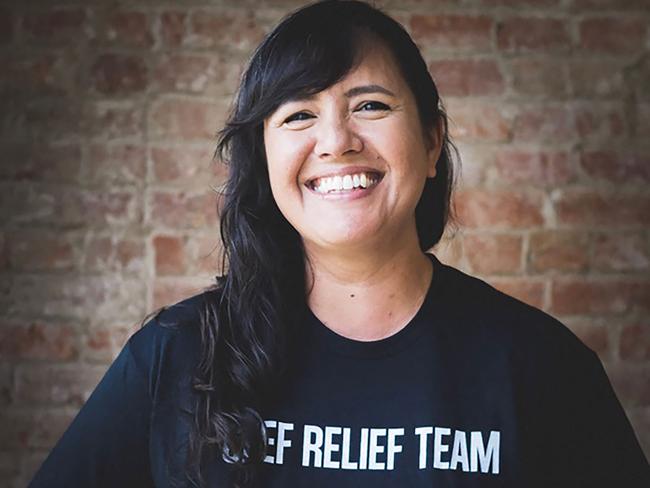
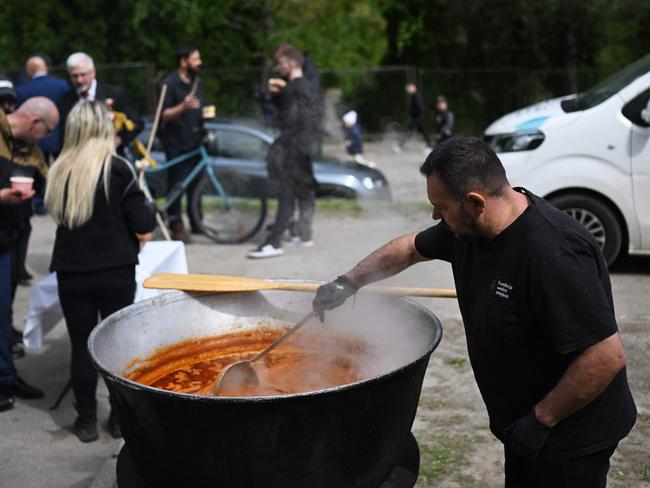
“We continue to grieve and mourn the loss of seven of our friends and colleagues who were killed in an IDF attack in Gaza,” the nonprofit’s CEO Erin Gore said in a statement Sunday.
She added that the World Central Kitchen was nonetheless “resuming operations in Gaza.” Gore noted the organisation had 276 trucks, with the equivalent of almost eight million meals, ready to enter through the Rafah Crossing.
“We will continue to get as much food into Gaza, including northern Gaza, as possible — by land, air, or sea,” she said.
WCK would also send trucks from Jordan, Gore said, adding that the organisation was exploring a maritime corridor and using Israel’s Ashdod Port.
WCK has 68 community kitchens in the region, and is building a third high-production facility in Mawasi in addition to the other two in Rafah and Deir al-Balah.
‘LIVING HELL’: GAZA STRUGGLES WITH HEAT, GARBAGE, INSECTS
As garbage piles up and the heat rises in war-torn Gaza, flies and mosquitoes proliferate in crowded Rafah city and life becomes even more grim for displaced people living in tents.
Last week, temperatures already topped 30 degrees Celsius, turning the makeshift shelters made from plastic tarps and sheets into sweltering ovens.
On a sliver of land on the outskirts of the far-southern city on the Egyptian border, about 20 of these tents have been erected, all shaded by a large sheet stretched above them.
But the thin, dark cloth is no match for the blazing sun that has sent temperatures rising fast in late April, making it harder to preserve scarce potable water and food.
“The water we drink is warm,” Ranine Aouni al-Arian, a Palestinian woman displaced from the devastated nearby city of Khan Yunis, told AFP.
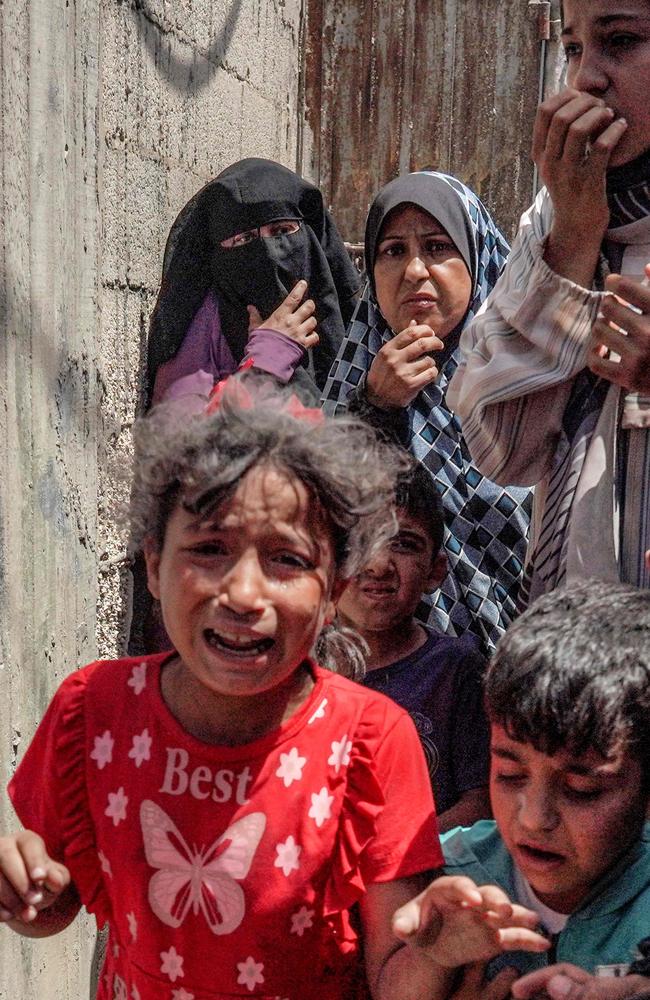
“The children can’t bear the heat and the mosquito and fly bites anymore,” she told AFP.
She was holding a baby whose face was covered in insect bites and said that she struggles to find “a treatment or a solution”.
Around her, swarms of flies and other insects were buzzing incessantly. “It’s the first time we see so many, because of the pollution and the waste discarded everywhere”, said Aala Saleh, from Jabalia in the north of Gaza.
He said sleeping has become nearly impossible inside his tent, “because we wake up from the mosquito bites, and our main concern is to kill these insects”.
Amid the heat and unsanitary conditions, he said he worried about “the spread of disease”.
The World Health Organisation warned in January of a leap in infectious diseases such as hepatitis A, blamed on unsanitary conditions in camps.
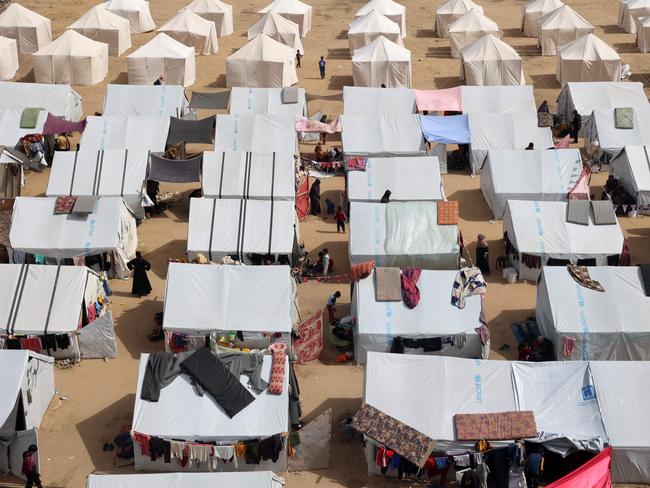
Rafah hosts about 1.5 million displaced, according to the UN, more than half of the Gaza Strip’s population which has been besieged and bombarded by Israel for nearly seven months.
On the streets, garbage accumulates as large rubbish containers overflow after basic services broke down long ago amid Gaza’s worst ever war.
“We’re living in hell,” said Hanane Saber, a 41-year-old displaced Palestinian whose children can no longer bear the steamy tent.
“I’m exhausted from the heat, on top of mosquitoes and flies everywhere that bother us day and night,” she said, her voice barely audible above the sound of Israeli drones and planes.
Daily tasks such as “cooking and cleaning” or preparing bread dough “are conducted inside the tent in stifling heat”, said Mervat Alian, a displaced woman from Gaza City.
“It’s as if we were living in a grave, life doesn’t exist anymore.”
More Coverage
Originally published as Israel-Hamas war: Hamas ‘positive’ tone raises hopes of truce deal



